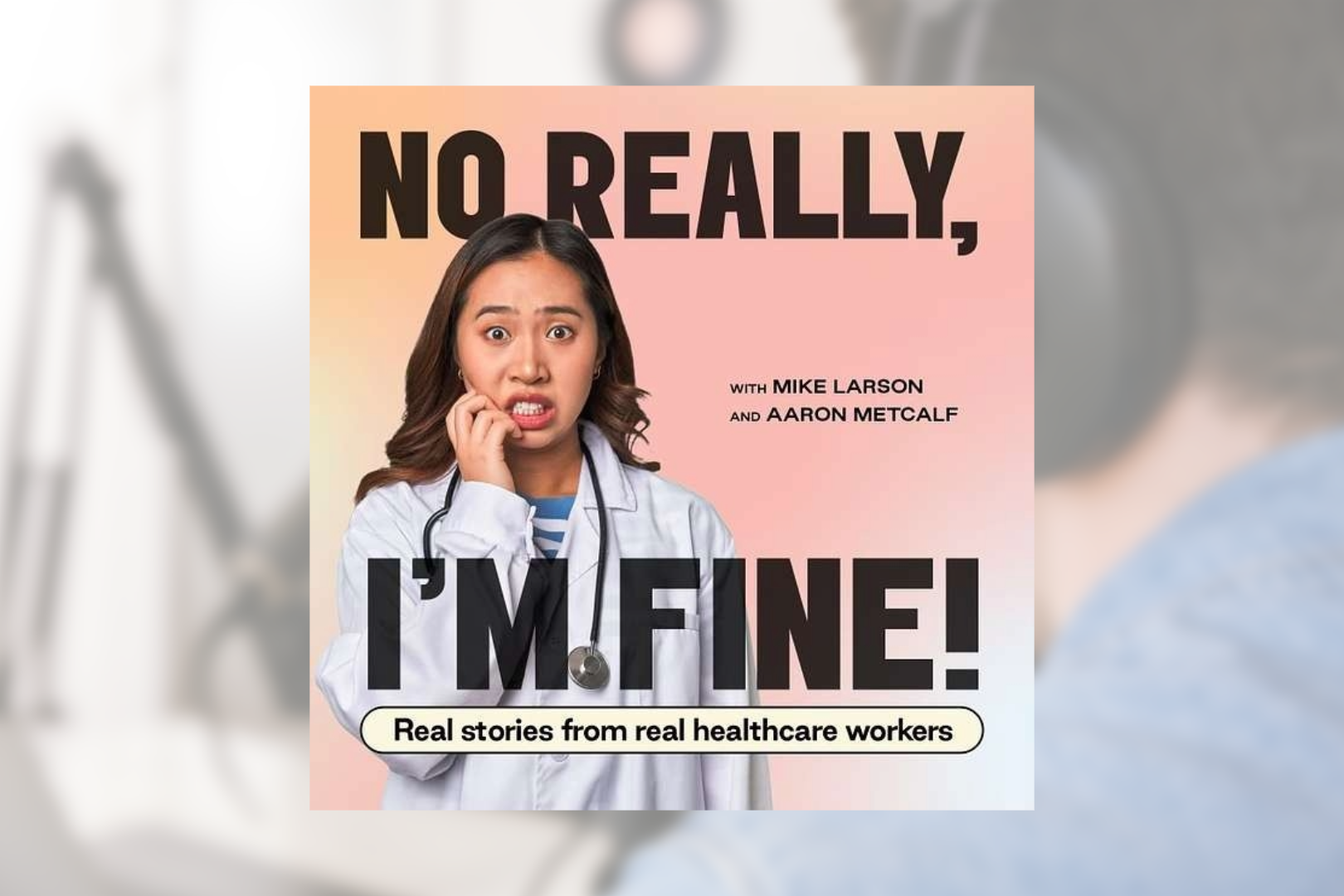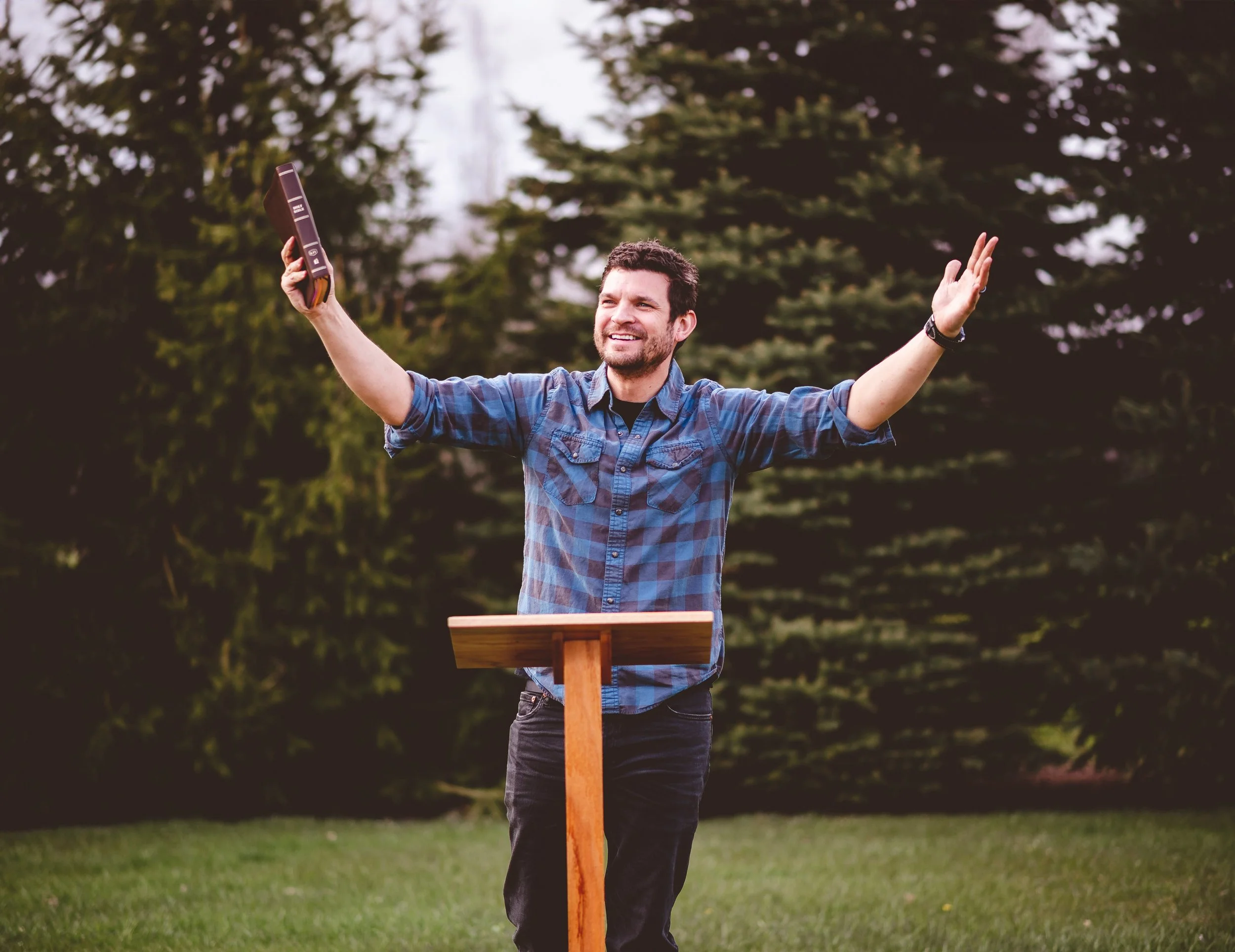Only God could plant a church like this. And if He could do it then, He can certainly do it now. Listen to God. Talk about Jesus to everyone. Baptize all of them. Plant a church full of people that have only one thing in common: Jesus.
All tagged ministry
Listen to Care: The “No Really, I’m Fine” Podcast
In their podcast No Really, I’m Fine, board-certified chaplains Aaron Metcalf and Mike Larson talk with healthcare workers in their Portland hospital about the stresses they face and how they cope emotionally with the daily demands of their jobs. The stories told in the episodes are authentic, heart-warming, and sometimes heart-wrenching accounts of real life in the trenches.
Connecting Saints and Sinners
When God connects saints and sinners, it is often the saint he is moving. Philip. Ananias. Peter. Sometimes he connects the seeker. The Ethiopian. Saul. Cornelius. Sometimes the person who at least on the surface has no God-interest.
The Two-Fold Challenge of Raising Up Ministers
A family does not need a long history in ministry or missions to raise children who love ministry. Parents can choose to create an environment that encourages their children to become involved in church in a deeper and more active way.
Frozen Rivers & Fresh Bridges: Leading Towards Intergenerational Ministry
I thought about the wintery seasons of life. Times when things died or went dormant. Yet, those deaths often brought new life and new emotions. I still experienced pain and grief, but I eventually found hope and possibility. Sometimes what looked like a closure in my life actually created a new path.
Addressing Charlie Kirk’s Death from the Pulpit
You may have a different opinion, but I believe that a lead minister would be wise to touch on tough topics, not as a preacher with a prophetic voice but as a pastor with a compassionate heart. Don’t ignore the obvious.
Ministry of Presence
The Ministry of Presence may be in break rooms, cafeterias, or even in the parking lot when walking to or from work. Military Chaplains ensure they are present by doing what soldiers, sailors, airmen, defenders, and marines do. This means going out for field training, airborne operations, physical training, and deployments.
Called to Serve—A Navy Chaplain’s Perspective on Ministry
So much of my ministry is about non-anxious listening without a rush to judgment, which can be incredibly difficult! And I often compare it to the ministry of pulling rocks out of soil rather than reaping the harvest, because so many come with a troubled history with Christianity and “organized religion.”
Narrative Structure and Purpose in the Book of Acts
Throughout the narrative, the author pauses the plot to report on the progress and growth of the church, which becomes a proclamation of victory for the gospel of Christ. Despite the persecutions, false accusations and abuses suffered, the Christian movement was unstoppable.
Always Being Ready
You cannot lead people somewhere you are not. If Jesus does not have your heart, it will be difficult to share a hope that may not be a reality in your life.
Living and Leading Together in Covenant
What if we could think this differently about our partners in life and leadership? What if, rather than holding them to an impossible ideal of relationship or partnership, in the hopes that we would never be wronged, we treat them with love and respect and care even though we know they will hurt us, wrong us, annoy us?
How to Change the World
We often think that we have to do something big for Christ. In fact, we sometimes even downplay or refer to our service as insignificant. We’ve got to realize that this type of thinking is not coming from the Bible but from the culture around us. We may not even realize how much of our culture has seeped into us.
A Tale of Two Buildings: Answering “The How” of Intergenerational Ministry
Ministry rarely offers a choice between one building project or the other. Instead, it requires constant movement between both approaches. Leaders spend time honoring and remodeling inherited structures while also investing energy imagining and innovating new possibilities.
The Church as the Suffering Servant
The church of our time, as the spiritual Israel of God, is called to embrace the figure of the suffering servant and renounce claims to political or economic power in a society that collectively can be seen as Babylon. As an alternative culture, we are to proclaim God’s justice to the world instead of conforming to it.
Spiritual Care and Ministering at End of Life to a Person With Dementia
I have heard the prayers of a person with dementia after someone prayed with them and, although to our ear it may be difficult to understand, the Lord knows their heart inside and out. It is such a beautiful thing to witness. The Lord's Prayer is often familiar to those with a spiritual background and can bring a sense of peace.
Spirit of the Living God
Ministry can sometimes feel like sailing into the wind—navigating competing needs, weary congregations, complex situations, and quiet pressures. And in a world enamored with metrics, driven by measurable outcomes and focused on the correct formula for success, it is easy to forget that the kingdom of God does not advance in this way. It advances by the breath of the Holy Spirit.
A Heart for the Poor
Christ approached her and gently put his arm around her, and said, “My daughter, I do not want you to be deceived, so I must tell you that you did not pass this test. Satan has overcome you and you did not know it. And I have now come to tell you to repent. For it is not the poor that you love, but yourself.”
Sterling’s Song
I would grow to be endeared by Sterling’s humor, caring nature, and honesty in the face of death. Sterling was not a particularly religious person, holding no particular allegiances to any established faith. We had very little personally in common, but sometimes you just click with someone.
Living in the Shadow of Death
It is not unusual for patients to experience spiritual distress throughout their medical journey. Conversely, many patients also find their faith deepened as a result of facing their own mortality. I find that patients who are allowed to express and explore their doubts and fears without judgement are the ones who find their faith most strengthened.
Am I Doing Any Good?: Spiritual Care for People with Cognitive Deficits at the End of Life
Perhaps most importantly, I was told told how to think differently. Instead of thinking, “I am wasting my time here,” think, “the gift of my time here honors this person as an individual worthy of love and respect.” A chaplain’s role is not to fix things or “do” something, but to bear silent witness to the suffering of another person.





















